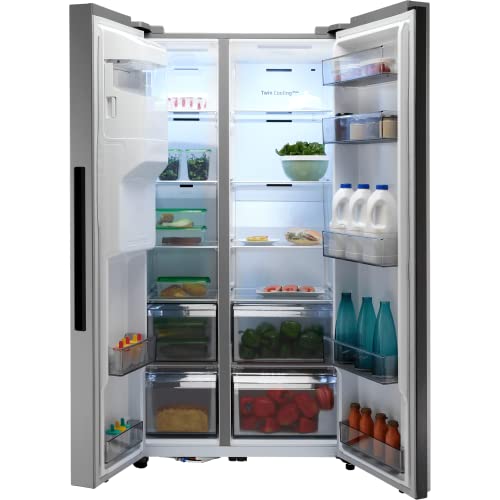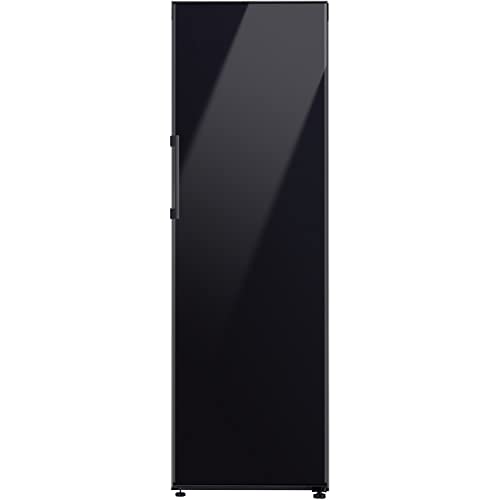
Black Shadows © 2013 -
Mentions légales/Policies
Mentions légales/Policies


In today’s world, where space frequently comes at a premium, the requirement for efficient and space-saving appliances is constantly growing. From busy city apartments to minimalist dormitory and mobile living spaces, optimizing functionality without sacrificing important square footage is essential. Enter the compact refrigerator, a marvel of modern engineering that delivers the vital convenience of refrigeration in a conveniently smaller package. These miniature marvels are not just scaled-down versions of their full-sized equivalents; they are attentively designed home appliances tailored to satisfy specific requirements and fit comfortably into areas where a standard refrigerator would just be not practical.
Compact fridges, also often described as mini-fridges, provide a flexible solution for anyone looking for refrigeration without the bulk. They are more than just dormitory staples; they are advanced cooling systems that cater to a wide variety of requirements, from keeping beverages chilled in an office to maintaining skincare items in a bedroom or saving treats and medications in a healthcare facility space. This short article explores the world of compact fridges, exploring their numerous types, benefits, crucial purchasing considerations, diverse applications, and necessary upkeep pointers to help you understand why these small powerhouses are becoming increasingly important in modern living.

The umbrella term « compact fridge » incorporates a range of specific types, each developed with an unique function in mind. Understanding these distinctions is the primary step in picking the ideal fridge for your particular requirements.
Here’s a breakdown of typical compact fridge types:
Mini-Fridges: These are perhaps the most identifiable kind of compact refrigerator. They are usually cube-shaped or a little rectangle-shaped and deal basic refrigeration. They typically consist of a small freezer compartment, though it’s usually best suited for ice trays or extremely small frozen products instead of long-term frozen food storage. Mini-fridges are popular for dormitory, offices, bedrooms, and as secondary fridges in homes.
Beverage Coolers: Designed particularly for cooling drinks, beverage coolers often focus on rack space for cans and bottles over conventional shelving for food items. They frequently include glass doors to display the contents and adjustable temperature controls optimized for drinks. These are perfect for home bars, recreation room, workplaces, or anybody who captivates regularly and desires devoted drink storage.
Wine Coolers: A specific kind of beverage cooler, wine coolers are designed to maintain the precise temperature and humidity levels required for optimum wine storage. They frequently feature horizontal racks to save wine bottles on their sides, avoiding corks from drying out. Wine coolers can be thermoelectric or compressor-based, with compressor models providing more constant cooling and humidity control. These are a must-have for wine lovers and collectors with minimal space.
Cube Fridges: As their name recommends, cube fridges are small and cube-shaped, using incredibly compact refrigeration. They are minimalistic in style and typically do not have a freezer compartment. Cube fridges are perfect for really tight areas where just vital cooling is required, such as small offices or personal spaces.
Under-Counter Fridges: Designed to fit flawlessly under kitchen counters or bars, these compact fridges are often more stylish and integrated than other types. They can feature features like beverage racks, crisper drawers, and even ice makers. Under-counter fridges offer practical access to chilled items in cooking areas, home bars, or home entertainment locations.
The appeal of compact fridges extends far beyond their space-saving measurements. They offer a series of advantages that make them a wise and practical choice for various situations:
Space Efficiency: The most apparent benefit, compact fridges master environments where space is restricted. They can suit corners, under desks, or in small rooms where a full-sized fridge would be difficult.
Energy Efficiency: Compact fridges normally take in significantly less energy than full-sized refrigerators. This translates to decrease electrical power costs and a minimized environmental footprint. For individuals or small households, a compact refrigerator can be a more energy-conscious refrigeration option.
Portability: Many compact fridges, especially mini-fridges and cube fridges, are designed to be lightweight and relatively portable. This makes them easy to move in between rooms, transportation to dormitories, and even handle road trips (though car-specific models are typically suggested for automobile use due to power requirements and vibration).
Cost-Effectiveness: Compact fridges are normally more economical to acquire at first than full-sized refrigerators. Their lower energy intake likewise contributes to long-lasting expense savings.
Benefit: Having a compact fridge in a bedroom, office, or video game space provides unrivaled convenience. It removes unneeded journeys to the kitchen for drinks, snacks, or medications, making every day life a bit much easier.
Specialized Storage: As seen with beverage and wine coolers, compact fridges can be particularly designed for particular storage requirements, guaranteeing ideal conditions for drinks, wines, or perhaps cosmetics and skincare products.
Choosing the ideal compact fridge involves considering several crucial aspects to ensure it meets your particular requirements and choices.
Here are vital aspects to examine before purchasing:
Size and Capacity: Determine the amount of storage space you need. Think about the intended use– beverages just, treats and drinks, or some food items. Compact fridges are determined in cubic feet, with sizes ranging from under 1 cubic foot to around 5 cubic feet for larger models.
Functions: Think about wanted functions. Do you require a freezer compartment? Adjustable shelves? Temperature control? Interior lighting? Beverage racks? Consider functions that line up with your intended use.
Energy Efficiency: Look for Energy Star scores to determine models that are more energy-efficient. Inspect the projected yearly energy intake to compare running costs in between various models.
Sound Level: Some compact fridges, particularly compressor-based designs, can be noisier than others. If sound is a concern, particularly in bedrooms or quiet workplaces, look for models marketed as « quiet operation » or examine decibel rankings if offered.
Brand and Reliability: Research credible brands known for producing trusted appliances. Read consumer examines to get insights into real-world efficiency and possible concerns.
Cost: Set a budget plan and compare prices throughout different models and brands. While more affordable models might appear attractive, think about long-lasting value, energy efficient fridges effectiveness, and reliability.
Aesthetic: For certain areas, like home bars or offices, the visual of the fridge might be crucial. Compact fridges come in numerous finishes and styles, from traditional black and white to stainless steel fridges-steel and even retro designs.
Compact fridges are far more versatile fridges than their association with dormitory may recommend. They discover practical applications in a wide range of settings:
Dorm Rooms: A classic use, compact fridges provide essential chilled drinks storage for students in limited dormitory areas, keeping drinks, snacks, and leftovers readily offered.
Offices: Personal or shared office fridges (similar web site) supply practical access to cold drinks, lunches, and snacks, improving worker convenience and productivity.
Bedrooms: Keeping medications, skin care products, or personal snacks chilled in a bedroom fridge adds convenience and personal convenience.
Game Rooms and Home Theaters: Beverage coolers or mini-fridges in entertainment areas make sure drinks and treats are constantly within reach throughout film nights or video gaming sessions.
Recreational vehicles and Trucks: Compact fridges designed for mobile usage (often with 12V DC power compatibility) are vital in RVs, trucks, and boats, providing refrigeration on the go.
Studio Apartments and Studios: In extremely studio apartments or studios, a compact fridge can serve as a primary refrigeration unit, specifically for people or couples with minimal food storage needs.
Medical Facilities and Care Facilities: Compact fridges are utilized in client spaces and care centers to store medications, personal drinks, or snacks under controlled temperature levels.
Proper upkeep is necessary to guarantee your compact refrigerator operates efficiently and lasts for years to come.
Here are crucial maintenance ideas:
Compact fridges are more than simply miniature versions of their larger equivalents; they are wisely created devices tailored for modern living. Their flexibility, space-saving style, energy efficiency, and cost-effectiveness make them a significantly valuable addition to homes, offices, and various other settings. Whether you need a devoted beverage cooler, a practical dorm space fridge, or a space-saving option for a studio apartment, understanding the types, benefits, and considerations detailed in this guide will empower you to choose the ideal compact fridge to meet your specific requirements and enhance your daily benefit. Welcome the magnificent mini, and experience the surprisingly substantial effect a compact refrigerator can have on your area and way of life.
Q: What is the typical life expectancy of a compact refrigerator?
A: The lifespan of a compact fridge is usually similar to that of a full-sized fridge, generally ranging from 10 to 15 years with proper maintenance. Elements like usage strength and quality of components can affect longevity.
Q: Are compact fridges energy-efficient?
A: Yes, usually compact fridges are more energy-efficient than full-sized refrigerators. Look for Energy Star accredited designs for optimal energy savings. However, energy intake can differ between models, so constantly inspect the energy ranking and approximated yearly usage.
Q: Do all compact fridges have freezers?
A: No, not all compact fridges have freezer compartments. Numerous mini-fridges consist of a small freezer, but it’s generally designed for ice trays or extremely limited frozen storage. Cube fridges and some beverage coolers frequently do not have freezers entirely. Wine coolers specifically do not have freezers.
Q: Are compact fridges loud?
A: Noise levels can differ in between compact fridge designs. Compressor-based designs might produce a visible hum, while thermoelectric models are usually quieter however might have less powerful cooling capacity. Look for « quiet operation » designs if sound is a substantial concern.
Q: Can I keep frozen food in a mini-fridge freezer for a long time?
A: Mini-fridge freezers are usually not developed for long-lasting frozen food storage. Temperature level fluctuations and minimal space make them much better suited for short-term storage of ice or a couple of small frozen items. For long-term frozen food storage, a dedicated freezer is suggested.
Q: How typically do I require to defrost a manual defrost compact fridge?
A: The frequency of thawing depends upon use and humidity levels, however generally, you ought to defrost a manual defrost compact refrigerator when frost accumulation reaches about 1/4 inch thick on the freezer walls. Regular defrosting prevents ice buildup that reduces performance and storage space.
Q: Can I utilize a compact fridge in my automobile?
A: While some compact fridges may technically operate in an automobile, it’s normally not recommended unless they are specifically developed for car usage and have 12V DC power compatibility. Standard compact fridges are created for home a/c power and might not endure the vibrations and power variations in a car. Car-specific portable refrigerators are a better alternative for in-vehicle refrigeration.